Limited Availability: Treatment beds filling quickly. Call now for immediate placement – (844) 561-0606
Explore a comprehensive guide to 63 inpatient, 187 outpatient, and 44 detox centers across Wisconsin. Compare costs, reviews, and treatment options to find the perfect rehab facility for your needs.

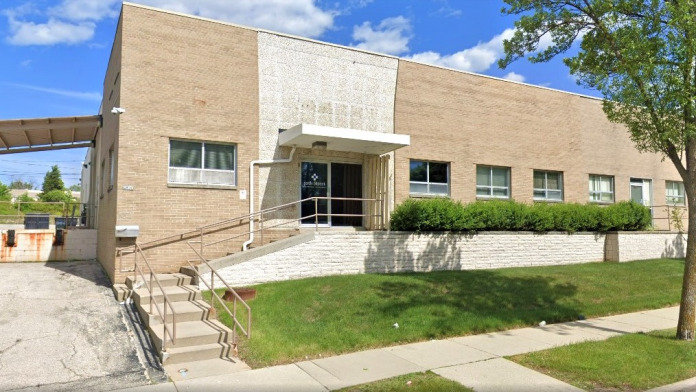 | 10th Street Comprehensive Treatment Center10th Street Comprehensive Treatment Center specializes in addiction-related services, particularly focusing on medication-assisted treatment (MAT) and outpatient addiction treatment for opioid use disorder. Their comprehensive approach aims to provide effective support for individuals seeking recovery.Key Features: 1. Medication-Assisted Treatment (MAT): Assessment Process: An initial assessment is conducted prior to admission to determine the appropriate dosage and type of medication for each individual. Medications Offered: Prescribes medications such as methadone, buprenorphine, Suboxone, and naltrexone to aid in safely detoxifying the body from harmful substances and to support long-term recovery. Treatment Hours: MAT services are available daily from 5:00 am to 3:00 pm and on Saturdays from 5:00 am to 10:00 am, allowing flexibility for clients to receive care. 2. Outpatient Addiction Treatment: Therapeutic Sessions: Provides both group and individual therapy sessions led by trained medical professionals. These sessions focus on: Addressing addictive behaviors and motivations. Building connections with peers. Developing healthy coping skills. Integrated Approach: Recognizes that combining therapeutic components with medication-assisted treatment offers the best chance for successful recovery from opioid use disorders. Conclusion: 10th Street Comprehensive Treatment Center is dedicated to offering effective and compassionate care for individuals struggling with opioid use disorder. Through their combination of medication-assisted treatment and comprehensive outpatient services, they strive to support clients on their path to recovery. 4800 S 10th St, Milwaukee, WI 53221 | Levels of Care:Intervention ServicesoutpatientAftercare SupportMedically Assisted Detox Payment Options:Military InsurancePrivate InsuranceSelf-Pay OptionsMedicaidMedicareFinancial Aid | ||
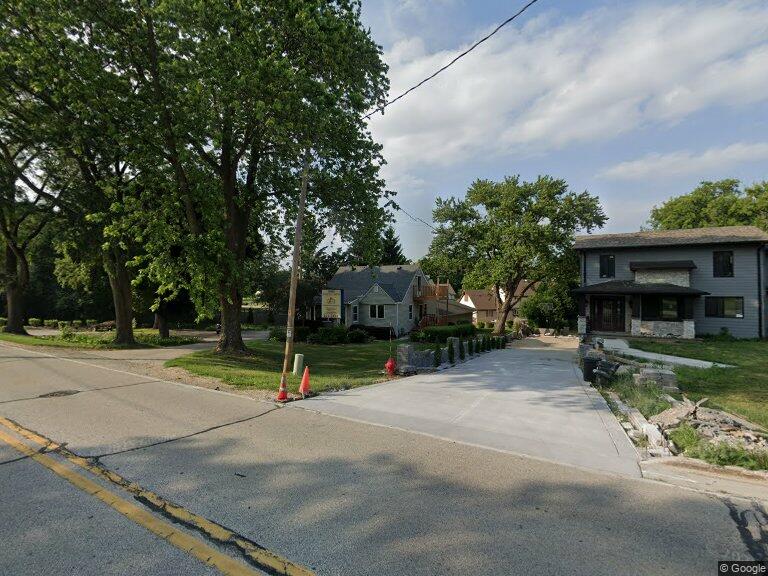 | A Healing CenterA Healing Center is a private alcohol and drug rehabilitation facility that provides comprehensive treatment for various substance abuse addictions, including those with co-occurring mental health disorders. The center focuses on flexible outpatient therapy, allowing patients to receive care while living at home.Key Features: 1. Outpatient Addiction Therapy: Flexible Treatment Options: Patients can participate in regular treatment sessions while continuing their daily lives, providing a supportive environment for recovery without the need for residential care. 2. Specialty Rehab Programs: Teen Treatment: The center offers age-appropriate treatment specifically designed for adolescents, addressing the unique challenges and issues faced by teenagers in recovery. 3. Comprehensive Care for Co-occurring Disorders: Integrated Support: A Healing Center is equipped to treat individuals struggling with both substance use disorders and co-occurring mental health conditions, promoting a holistic approach to recovery. Conclusion: A Healing Center is dedicated to providing effective and compassionate care for individuals dealing with substance abuse and mental health disorders in Waukesha, Wisconsin. With a focus on outpatient therapy and specialized programs for teens, the center aims to support clients in their journey toward healing and recovery. 20860 Watertown Rd, Waukesha, WI 53186 | Levels of Care:outpatient Payment Options:Military InsurancePrivate InsuranceSelf-Pay OptionsMedicaid | ||
Aalto Enhancement Center8503 75Th Street Suite A Kenosha WI, 53142 | Payment Options:Medicaid Private insurance Self-pay options Financial aid Sliding scale payment assistance Medicare Military insurance | |||
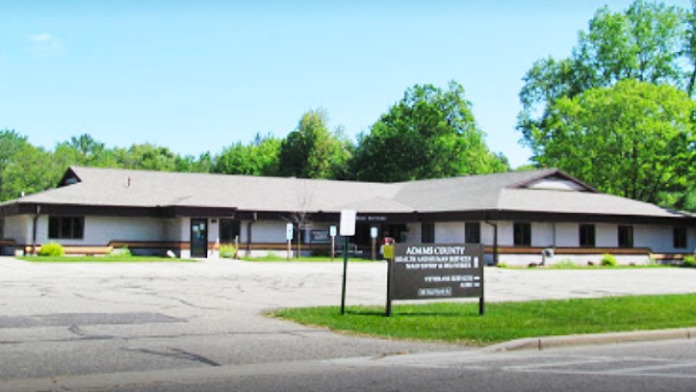 | Adams County Health and Human Services108 East North Street Friendship WI, 53934 | Payment Options:Medicaid Private insurance Self-pay options Financial aid Financing available Sliding scale payment assistance Medicare | ||
Addiction Counseling Service17 Forest Avenue Fond Du Lac WI, 54935 | Payment Options:Medicaid Private insurance Daily | |||
Advantage Behavioral Healthcare200 S. Executive Drive Suite 101 Brookfield WI, 53005 | Payment Options:Self-pay options | |||
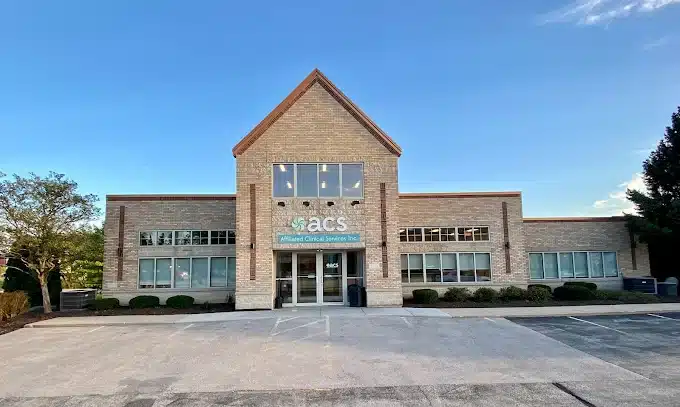 | Affiliated Clinical ServicesAffiliated Clinical Services offers treatment for alcohol and drug addiction, guided by certified counselors under the direction of a program director. The treatment approach is personalized, taking into account each patient’s unique needs and circumstances.Key Features: 1. Personalized Treatment Plans: Program Duration: The length of treatment programs is determined by the lead therapist based on the patient’s prognosis, coping mechanisms, history of addiction, and social support. Step-Down Approach: Patients may transition to less intensive treatment levels as they demonstrate stronger coping strategies and support systems. 2. Intensive Outpatient Program (IOP): Small-Scale IOP: The IOP is designed to be more intimate and does not include partial day or intensive residential services, differentiating it from larger treatment centers. Flexible Scheduling: Patients can participate in 10 to 12 hours of group and individual services each week, allowing them to maintain their daily activities, such as work. Group Meetings: Groups meet one to three times a week for sessions lasting one to five hours. This structure helps patients build external support networks and reinforce their recovery through program materials. 3. Relapse Prevention Program: Eligibility: Participants in the relapse prevention program must have maintained sobriety for at least three months. Focus on Long-Term Sobriety: This program aims to help clients adhere to their sobriety plans and cultivate a sustainable sober lifestyle through group processes and additional support. Groups meet weekly. 4. Medication-Assisted Treatment (MAT): Co-occurring Treatment Programs: Patients receiving MAT can access both day and evening programming. MAT Agreements: Patients adhere to a MAT agreement that includes guidelines for Suboxone use, drug testing, and medication safety protocols. Tapering Protocol: A tailored tapering protocol is employed as patients complete their outpatient treatment, ensuring a gradual and supportive transition. Conclusion: Affiliated Clinical Services is dedicated to providing tailored treatment for alcohol and drug addiction through comprehensive outpatient programs. With a focus on personalized care, support networks, and flexible scheduling, the organization aims to empower individuals in their recovery journey. 111 E Washington St, West Bend, WI 53095 | Levels of Care:outpatientMedically Assisted DetoxIntensive Outpatient (IOP) Payment Options:Military InsurancePrivate InsuranceSelf-Pay OptionsMedicaidMedicareFinancial Aid | 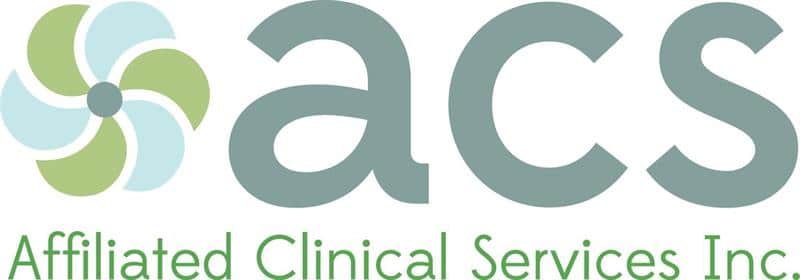 | |
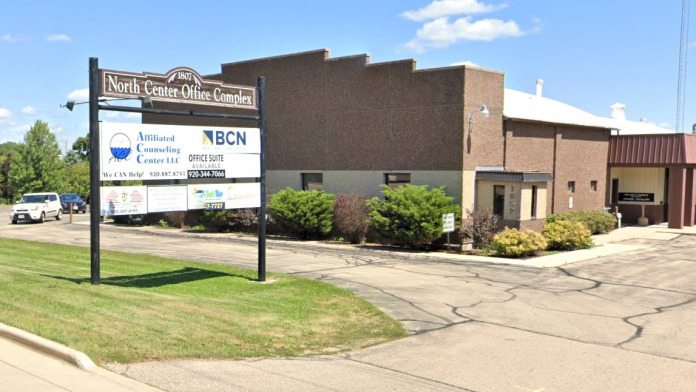 | Affiliated Counseling Center108 North Lincoln Avenue Beaver Dam WI, 53916 | Payment Options:Medicaid Private insurance Self-pay options Financial aid Sliding scale payment assistance Medicare Military insurance | ||
Affiliated Wellness Group524 Milwaukee Street Suite 308 Delafield WI, 53018 | Payment Options:Medicaid Private insurance Self-pay options Financial aid Medicare Military insurance | |||
Affinity Medical Group Kaulauna2601 Fieldcrest Drive Kaukauna WI, 54130 | Payment Options:Medicaid Private insurance Self-pay options Financial aid Medicare Military insurance | |||
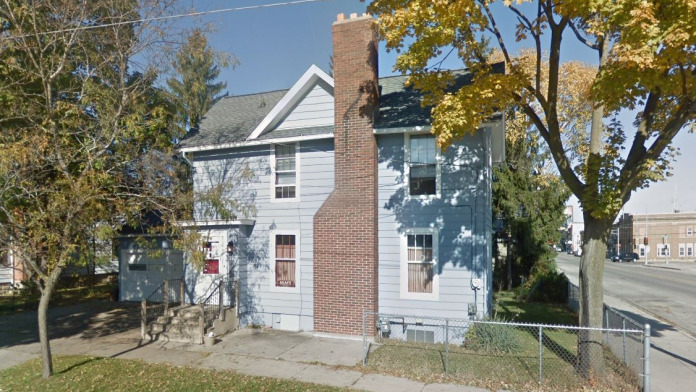 | Agape Recovery Center201 North Pine Street Burlington WI, 53105 | Payment Options:Private insurance Self-pay options Sliding scale payment assistance | ||
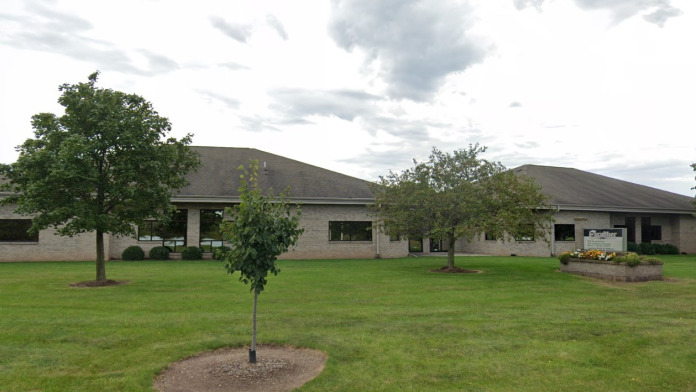 | Agnesian Healthcare - Doll & Associates40 Camelot Drive Fond Du Lac WI, 54935 | Payment Options:Medicaid Private insurance Self-pay options Financial aid Medicare | ||
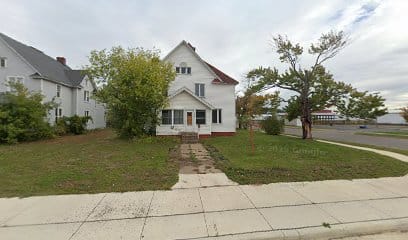 | Ain Dah Ing - Alcohol and Drug ProgramAin Dah Ing – Alcohol and Drug Program is a public rehabilitation center located in Spooner, Wisconsin, dedicated to providing comprehensive treatment for various substance use disorders, including alcoholism, opiate addiction, and co-occurring mental health disorders. The program offers long-term residential care aimed at supporting individuals on their journey to recovery.Key Services: 1. Residential Care: Long-Term Support: Provides an immersive residential environment that allows individuals to focus on recovery away from everyday triggers and stressors. 2. Additional Levels of Care: Recovery Housing: Offers supportive housing options for individuals transitioning from residential treatment back into the community, ensuring they have a stable environment as they continue their recovery journey. 3. Specialty Rehab Programs: Tailored Care for Women: Focuses on the unique needs and experiences of women in recovery, providing a supportive and understanding environment. Gender-Specific Treatment for Men: Addresses the specific challenges faced by men in recovery, ensuring that treatment is relevant and effective. Inclusive Treatment: Respects and accommodates diverse sexual orientations and gender identities, creating an inclusive environment for all individuals seeking help. Conclusion: Ain Dah Ing – Alcohol and Drug Program offers a comprehensive and supportive approach to addiction recovery in Spooner, Wisconsin. With specialized programs that cater to the unique needs of different demographics and a focus on long-term support, they strive to empower individuals on their path to sobriety and well-being. 704 River St, Spooner, WI 54801 | Levels of Care:InpatientSober Living Homes Payment Options:Military InsurancePrivate InsuranceSelf-Pay OptionsMedicaidMedicareFinancial Aid | ||
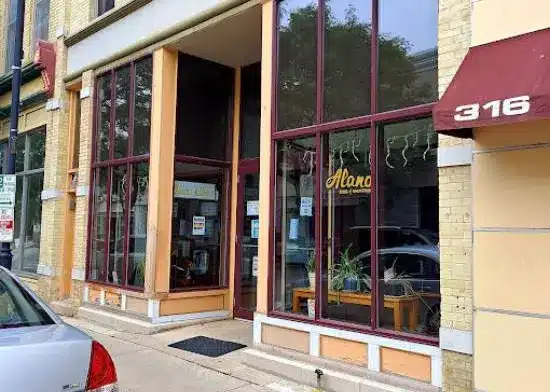 | Alano Club - Waukesha, WIThe Alano Club is a non-profit alcohol and drug rehabilitation center that provides treatment for a variety of substance abuse addictions, including alcoholism and opiate addiction. The facility emphasizes flexible outpatient therapy, allowing patients to receive care while living at home.Key Features: 1. Outpatient Addiction Therapy: Flexible Treatment Options: Patients can engage in outpatient therapy sessions, enabling them to maintain their daily routines while receiving necessary support for recovery. 2. Additional Levels of Care: Relapse Prevention: The Alano Club offers relapse prevention programs designed to equip clients with strategies to maintain their sobriety and prevent future relapses. 12-Step Therapy: The center incorporates 12-step principles into its treatment approach, providing a structured framework for recovery. 3. Specialty Rehab Programs: Women’s Specific Care: Tailored programs are available to address the unique needs and experiences of women in recovery, ensuring that treatments are relevant and supportive. Gender-Specific Addiction Treatment: The Alano Club also offers gender-specific treatment programs that focus on the unique challenges faced by men in their recovery journeys. Conclusion: The Alano Club is committed to providing effective and compassionate care for individuals dealing with substance use disorders in Waukesha, Wisconsin. With a focus on outpatient therapy, relapse prevention, and specialized programs for both women and men, the center aims to support clients in their recovery journey while addressing their unique needs. 318 W Broadway, Waukesha, WI 53186 | Levels of Care:outpatientAftercare Support12-Step Payment Options:Free |  | |
Alano Club 767676 East Central Street Chippewa Falls WI, 54729 | Payment Options:Free | |||
Alano Club Drop in Center1101 8Th Street South La Crosse WI, 54601 | ||||
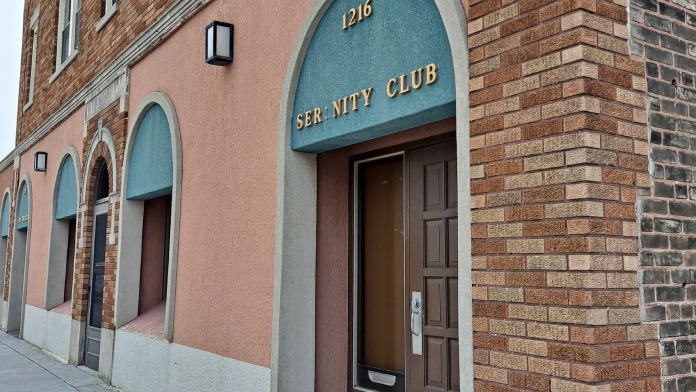 | Alano Serenity ClubAlano Serenity Club is a community-focused resource dedicated to supporting individuals in recovery from addiction. The club provides a welcoming environment for those seeking help and connection through peer support services and recovery meetings.Key Services: 1. Peer Support Services: Lived Experience Support: The peer support program is delivered by individuals who have personal experience with addiction and recovery. These trained peers offer valuable insights and encouragement to others on their recovery journey. State-Certified Training: Peer supporters undergo a certification program to ensure they are equipped with the necessary skills to guide and assist individuals seeking recovery. Services Offered: Recovery Goal Setting: Assistance in establishing and planning achievable recovery goals. Navigating Services: Help in accessing various recovery resources and services. Ongoing Recovery Support: Continuous support to aid individuals in maintaining their sobriety. 2. Recovery Meetings: Alcoholics Anonymous (AA) and Narcotics Anonymous (NA): Offers regular meetings for individuals struggling with alcohol use disorder and substance use disorders. These meetings are based on the 12-step recovery model. Meeting Structure: Members share their experiences and challenges in a supportive environment, fostering connection and understanding. The program encourages participants to work with a sponsor—another person in recovery who has completed the 12 steps. Accessibility: Meetings are available throughout the day, seven days a week, ensuring that individuals can find support when they need it most. Volunteer-Run Meetings: Members of the club volunteer their time to facilitate meetings, further strengthening the community aspect of recovery. Conclusion: Alano Serenity Club serves as a vital resource for individuals seeking recovery from addiction in Superior, WI. Through peer support services and accessible recovery meetings, it fosters a supportive community that empowers individuals on their journey toward sobriety. 1216 Belknap St, Superior, WI 54880 | Levels of Care:outpatient12-StepAftercare Support Payment Options:Free | ||
Alcohol and Drug Abuse Resource131 South Main Street Fond Du Lac WI, 54935 | Payment Options:Free | |||
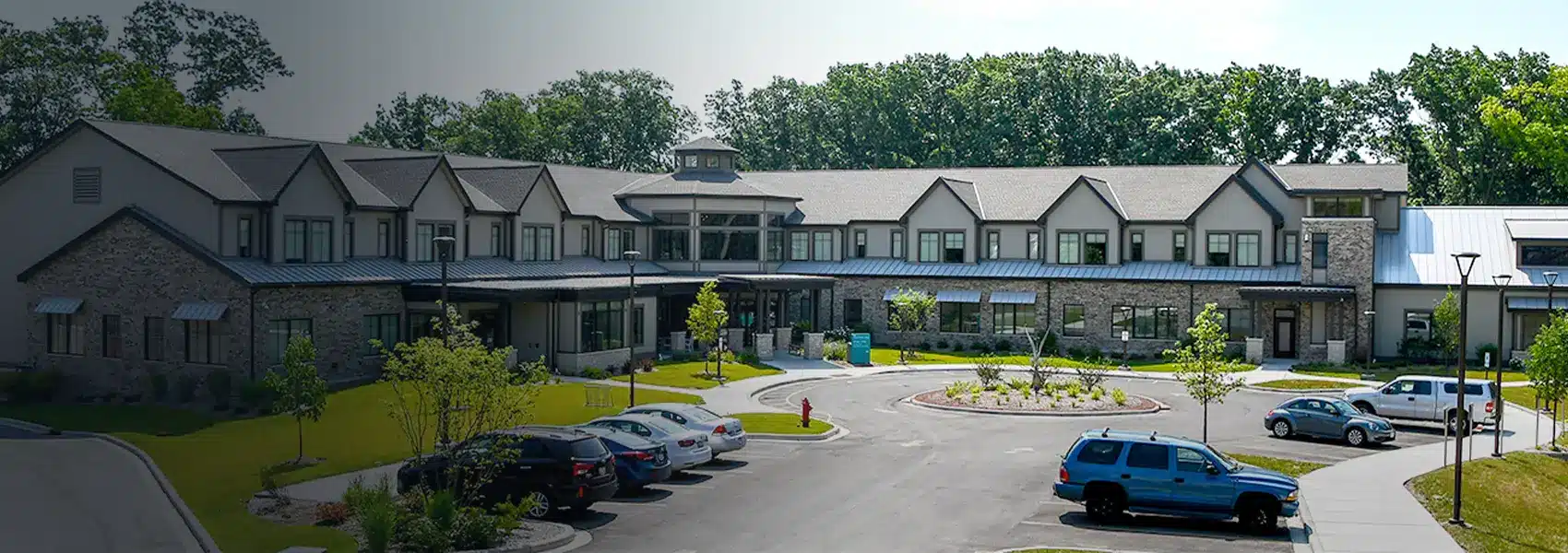 | Aloria HealthAloria Health specializes in the treatment of eating disorders, providing comprehensive and compassionate care for individuals struggling with issues such as anorexia, bulimia, binge eating disorder, and other related conditions. The center focuses on fostering recovery through evidence-based treatment methods tailored to each person\'s unique needs.Key Features: 1. Comprehensive Treatment Programs: Individualized Care: Offers personalized treatment plans designed to meet the specific needs of each client, ensuring a holistic approach to recovery. Multidisciplinary Team: Staffed by a team of professionals, including medical doctors, therapists, dietitians, and support staff, all working together to provide comprehensive care. 2. Evidence-Based Therapies: Therapeutic Approaches: Utilizes various evidence-based therapies, such as Cognitive Behavioral Therapy (CBT), Dialectical Behavior Therapy (DBT), and nutrition education, to address the psychological and physical aspects of eating disorders. Group Therapy: Offers group therapy sessions that encourage peer support and shared experiences, fostering a sense of community among clients. 3. Supportive Environment: Focus on Recovery: Creates a safe and supportive environment where clients can focus on their recovery journey without judgment or stigma. Family Involvement: Recognizes the importance of family support in the recovery process and may offer family therapy and educational resources to help loved ones understand the challenges of eating disorders. 4. Aftercare and Relapse Prevention: Ongoing Support: Provides aftercare services and resources to help clients maintain their progress and prevent relapse after completing their treatment programs. Conclusion: Aloria Health is dedicated to providing effective and compassionate treatment for individuals struggling with eating disorders in Milwaukee. With a focus on individualized care and a supportive environment, they aim to empower clients on their path to recovery and overall well-being. 312 E Wisconsin Ave, Milwaukee, WI 53202 | Levels of Care:Inpatientoutpatient Payment Options:Military InsurancePrivate InsuranceSelf-Pay OptionsFinancial Aid | ||
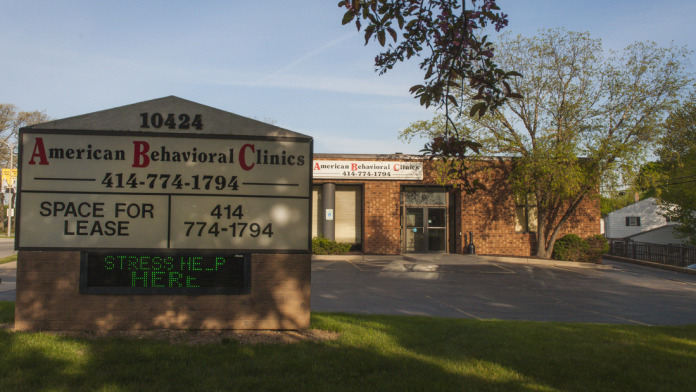 | American Behavioral Clinics - Bluemound ClinicAmerican Behavioral Clinics – Bluemound Clinic offers outpatient mental health and addiction treatment tailored to meet the diverse needs of individuals across all age groups. Their comprehensive services focus on both mental health care and addiction recovery, ensuring holistic support for clients and their families.Key Features: 1. Outpatient Mental Health and Addiction Treatment: Diverse Services: Provides adult addiction treatment, mental healthcare, and specialized psychiatric services for children and teens. 2. Evidence-Based Addiction Recovery: Integrated Treatment Approaches: Combines counseling, education, and pharmacotherapy to support clients in their recovery journey. Medication-Assisted Treatment (MAT): Offers MAT using Suboxone for clients in opioid recovery to help manage cravings and alleviate withdrawal symptoms. 3. Medication Management: Co-occurring Disorders: Clients with mental health concerns may receive psychotropic medications, ensuring safe and effective treatment regimens tailored to their needs. Holistic Healing Focus: The clinic emphasizes a combined approach integrating medication, psychotherapy, and recovery education for long-term support and healing. 4. Specialized Services: Comprehensive Care: Offers advanced services such as genetic testing, hypnosis, exposure therapy, and an in-house pharmacy to address complex patient needs. 5. Onsite Therapeutic Spa: Viva Wellness Spa: Provides a unique therapeutic atmosphere for holistic treatment of mental, emotional, and physical health. Mindfulness and Stress Management: The spa encourages clients to practice mindfulness and develop coping skills essential for long-term sobriety. Therapeutic Interventions: Features non-narcotic injections for chronic pain management and IV infusion therapies to support clients with nutritional deficiencies. Conclusion: American Behavioral Clinics – Bluemound Clinic is committed to delivering comprehensive, evidence-based mental health and addiction treatment services in Milwaukee. Their focus on individualized care, specialized services, and holistic wellness through the onsite spa creates a supportive environment for clients on their journey to recovery. 10424 W Bluemound Rd, Milwaukee, WI 53226 | Levels of Care:outpatientIntensive Outpatient (IOP)Medically Assisted Detox12-Step Payment Options:Military InsurancePrivate InsuranceSelf-Pay OptionsMedicaidMedicare | 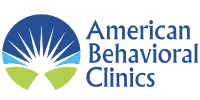 |
Find Wisconsin drug rehabs in cities near you or sort by letter.
For anyone seeking help for addiction for themselves or a loved one calls to Addiction Helpline America are completely confidential and available 24/7.
Please note: any treatment center listed on our site that receives calls is a paid advertiser.
Calls to a specific treatment center’s listing will be connected directly to that center.
Calls to our general helpline will be answered by treatment providers, all of whom are paid advertisers.
By calling the helpline, you agree to our terms and conditions. These calls are free of charge and carry no obligation to enter treatment. Neither Sober Steps nor anyone answering your call receives a commission or fee based on your choice of treatment provider.
If you’d like to explore additional treatment options or connect with a specific rehab center, you can browse our top-rated listings, visit our homepage, or call us at (844) 561-0606. You may also contact us for further assistance.
Calls to any general helpline will be answered or returned by one of the treatment providers listed, each of which is a paid advertiser:
Our helpline is available 24 hours a day, 7 days a week at no cost to you and with no obligation for you to enter into treatment. We are committed to providing support and guidance whenever you need it.
In some cases, Addiction Helpline America charges our verified partner a modest cost per call. This fee helps us cover the costs of building and maintaining our website, ensuring that we can continue to offer this valuable service to those in need.
Addiction treatment can take various forms, including inpatient, outpatient, and detox programs. Each option caters to different needs, allowing individuals to choose a path that best suits their circumstances and recovery goals.
Inpatient treatment provides a structured environment where patients receive round-the-clock care, making it ideal for those with severe addictions. Outpatient programs offer flexibility, allowing patients to maintain their daily routines while attending therapy sessions. Detox programs focus on safely managing withdrawal symptoms and preparing individuals for further treatment.
The cost of addiction treatment can vary significantly based on the type of facility, the services offered, and the duration of the program. Understanding these costs is crucial for individuals seeking help as they navigate their recovery journey.
Many treatment centers in Wisconsin accept various insurance plans, which can greatly reduce out-of-pocket expenses. Additionally, some facilities offer sliding scale fees based on income, financial aid, or payment plans to ensure that treatment is accessible to those in need.
Evaluating the success rates and reviews of treatment centers can provide valuable insights for individuals seeking help. Many facilities publish their success rates, which reflect the percentage of patients who achieve sobriety after completing their programs.
Online reviews and testimonials from former patients can also offer a glimpse into the effectiveness and quality of care provided by a treatment center. Prospective clients are encouraged to research multiple sources to make informed decisions about their recovery options.
Support services for families are essential in the recovery process, as addiction affects not only the individual but also their loved ones. These services can help family members understand addiction, cope with its challenges, and support their loved ones in recovery.
Many treatment centers offer family counseling sessions, educational resources, and support groups specifically designed for families. These programs aim to strengthen family dynamics and foster a supportive environment conducive to recovery.